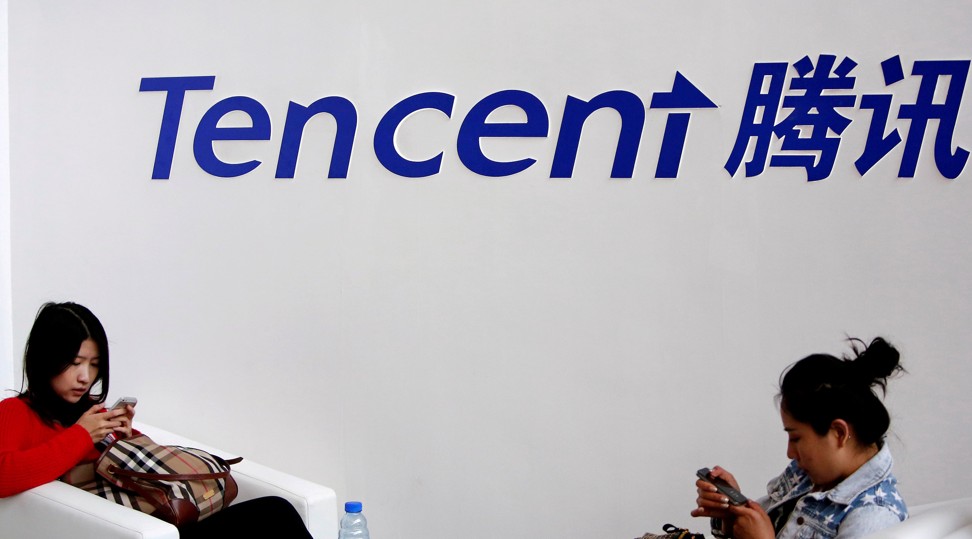
Vietnam’s rising tech talent help put country on the start-up map
- In one of the world’s fastest-growing economies, a new breed of entrepreneurs is spurring innovation in everything from cybersecurity to language learning
Growing up in Vietnam with American television shows and films, Vu Van always dreamed about living in the United States.
But when she finally moved to California after being accepted at Stanford University in 2009, her spoken English skills, a work in progress, caused her to feel left behind.
“I would be speaking up in class and my professors couldn’t understand me,” she said. “Even though I had great ideas, they weren’t being received with full attention. I lost a lot of confidence in that first year.”
Van’s experience inspired her to create the English Language Speaking Assistant app after returning to Vietnam. Launched in 2015, ELSA, which uses artificial intelligence to help English learners improve their pronunciation, has already raised US$3.2 million in funding from Monk’s Hill Ventures, an investment firm that focuses on Southeast Asian start-ups.
“I conducted a survey and 90 per cent of respondents said they felt scared about speaking and there are no real solutions to help people solve these challenges,” said Van, who estimates that 1.5 billion people globally are learning English at any one time.
Vietnam’s Catholics: cross with China, and all communists
While the idea of AI-based language learning is highly original, Van’s home-grown success story is just one of numerous Vietnamese start-ups that have made their mark in recent years.
Emerging from the global financial crisis largely unscathed, Vietnam has grown by 6 per cent on average each year over the past 10 years, making it one of the fastest-growing economies in the world. Vietnam is also home to one of the largest young populations in the world – more than 60 per cent of its 90 million inhabitants are under the age of 35.
These factors have made Vietnam home to one of the most vibrant start-up scenes in the world.
Last year, 39,580 start-ups entered the market, according to a report by Asean Post. Local start-ups received US$291 million in funding in 2017, double the amount of the previous year. Most of these start-ups are in the tech sector, which is poised to grow exponentially thanks to the nation’s young and internet-savvy population.
Besides funding from Silicon Valley, local start-ups have also caught the interest of regional giants.

Tencent was among the first in a string of Chinese firms to focus on the country when, in 2008, it invested an undisclosed sum in Vietnamese technology firm VNG, often cited as Vietnam’s answer to Tencent. JD.com invested around US$50 million in Vietnamese online retailer Tiki earlier this year, according to TechCrunch.
Eddie Thai, a partner at 500 Startups, a US$14 million micro-venture capital fund, said Vietnam has remained attractive compared to other emerging markets.
“In [other parts of] Southeast Asia including Singapore and Malaysia, start-up ecosystems have matured,” Thai said. “Vietnam in turn, has risen in prominence due to its strong economy, demographics, and talent.”
“Vietnam currently has around 250,000 engineers, the number of tech jobs having doubled over the last three years,” he said, adding that Vietnam’s IT labour costs are about 40 per cent less than in China and India.
Thai said many of the start-ups he invests in provide solutions for Vietnam’s emerging market problems. Among them are Productify, a platform for building financial applications; Detexian, which provides cybersecurity for small and medium-sized businesses; and English-learning app ELSA.
Unlucky week for Vietnam’s bachelor – and its elephants
“Vietnamese start-ups are especially equipped to tackle emerging market issues,” Thai said, adding that he expects to see major developments in fintech, e-commerce, transport and logistics, education and health care over the next few years.
Like Vu Van, Vietnamese-American start-up founder Roy Nguyen’s story involves a homecoming to solve emerging market problems.
“In 2013, I made a cycling trip across Vietnam and witnessed un-banked people unable to access finance from financial institutions,” he said. “Likewise, talented local artisans and young entrepreneurs are facing a lot of problems to access capital.”
A year later, he launched Huy Dong, a peer-to-peer fintech service. Since then, the start-up has partnered with SparkLabs, a South Korean accelerator, as well as Silicon Valley Vietnam, a local government-run start-up initiative.
Vietnam’s unique socialist policies and communist history have affected the development of the bustling start-up scene. Last year, Deputy Prime Minister Vuong Dinh Hue announced that the government planned to increase the number of businesses in Vietnam from 500,000 to one million by 2020.

“The government has an important role to play, especially around investing in education and infrastructure, as well as creating a fair playing field with transparent and streamlined rules,” said Thai. “Still, regulators in Vietnam are generally seen as taking a ‘two steps forward, one step backward’ approach, but overall the direction has been positive.”
Nguyen expressed a similar sentiment.
“Fortunately, in recent years, the government reduced the number of state-owned enterprises and gave more space for the private sector to grow,” he said.
The biggest difference between Vietnam and Silicon Valley is the scale and size of the start-ups, according to Van.
“We just started a few years ago [and] we don’t have a lot of big companies that have gone global, that have a lot of international investment like those in Silicon Valley yet.”
Nguyen said, however, that cloning the Silicon Valley model was not a realistic option for Vietnam.
“In general, Vietnam offers lots of opportunities as a frontier market … However, it also faces problems like the risk-averse culture, local monopolies and a fragmented start-up ecosystem,” he said, adding that the government needs to create more incentives for innovation and entrepreneurship.
As a nation that was divided between 1954 until 1976, regional differences often impact the way nationwide start-ups and businesses operate. The culture between the north and south remains very distinct, said An Ha, managing director of Startup Viet Partners, an investment fund that focuses on seed funding.
Persecuted in Hanoi, locked up in Bangkok: the Montagnards, Vietnam’s forgotten Christians
“In the south, people are more open and willing to try new things,” she said.
“Northern people are more traditional in that they love the familiar and things that are recommended to them,” she said, explaining that start-ups in the north do better having fewer salespeople and representatives who build strong relationships and trust. “The moment northern consumers realise the product will bring more value to their lives, they will introduce their friends to it.”
Regardless of region, Ha said the start-up scene is generating buzz nationwide.
“In Ho Chi Minh City, there are lots of events, activities, meetups and coffees where it’s easy to meet founders and entrepreneurs,” she said.
Sill, founders agree the scene is in its early days.
“From ideas to the number of incubators, investors, angel investors who come in and support the system – I think the last few years we’ve seen a dramatic amount of growth,” said Van, founder of ELSA.
“We’re growing fast, but we’re still really young and we still need many more success stories to put our country on the map.”

